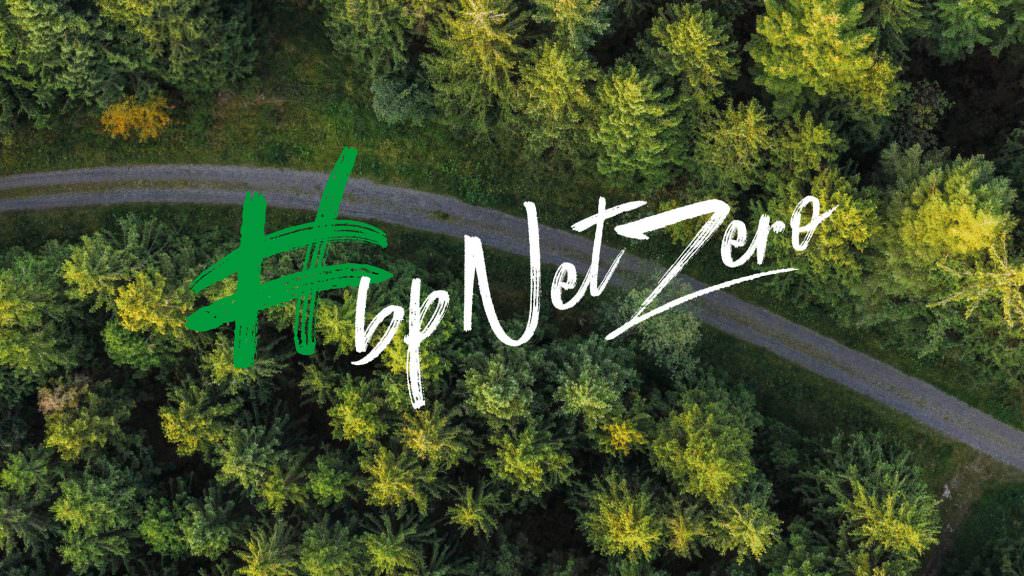by Belinda Noble.
The science may be clear on global warming but navigating your way through your day-to-day activities as a communicator can be difficult if you want to do the right thing.
Much of our economic activities currently rely on fossil fuels in some way.
But that doesn’t mean it’s the only way, or the best way.
We are the clever country and the lucky country, and we can move to clean, sustainable power – in fact many states and businesses already are.
Here are some ideas on how to sort your way through government policy, business plans, and creative briefs to be a climate conscious communicator.
This is a guide to best practice in climate communications. You do not need to follow all of these suggestions to be able to declare with Comms Declare.
Who (not) to work with.
The fossil fuel sector is enormously influential in Australia and spends tens of millions in advertising and marketing every year.
We are not anti-mining. We are not anti-business. We are anti-fossil fuel growth and the continuation of high greenhouse gas pollution as ‘business as usual’.
We want to stop the ability of the dirty energy lobby and those who help them from undermining our democracy and right to a safe future.
These organisations have actively lobbied for the expansion of fossil fuel extraction against the best interests of the Australian people. Find out more at 350.org.
- APPEA
- The Chamber of Minerals and Energy of Western Australia
- LETA (formerly COAL21)
- Institute of Public Affairs
- Minerals Council of Australia
- NSW Minerals Council
- Queensland Resources Council
- South Australian Chamber of Mines and Energy
Comms4Climate keeps a list of communication agencies that have promoted the expansion of fossil fuels.
These political parties have received donations from fossil fuels corporations.
- Australian Labor Party
- Clive Palmer’s United Australia Party
- Liberal Party of Australia
- Pauline Hanson’s One Nation
These news publications have a history of providing a platform for climate deniers or providing false equivalence between climate scientists and deniers.
- The Australian
- 2GB
- 4BC
- The Daily Telegraph
- Sky News Australia
- Daily Mercury
- The Courier-Mail
- The Herald Sun
- The Morning Bulletin
- The West Australian
Who should you work with?
Anyone who has declared they will not promote the growth of fossil fuels or continuation of high greenhouse gas pollution as ‘business as usual’ – for example, Comms Declare members.
What to work on.
There are many grey areas but at Comms Declare, we draw the line at promoting fossil fuels or treating high greenhouse gas pollution as ‘business as usual’. On the other hand, we celebrate positive climate action by companies truly committed to change.
Avoid
- Providing false equivalence of the views of climate deniers compared with climate scientists
- Developing a creative campaign with messages that encourage unconscious consumerism, such as fast fashion
- Accepting sponsorship or advertising from a company or organisation promoting fossil fuels
- Conducting digital marketing services for a company that is providing equipment to a new thermal coal mine
- Doing crisis communications for a lobby group that has a history of climate denial
- Strategising messaging for a company that advocates for increased meat consumption but not carbon-reducing farming practices
- Making a promotional video for a community activity or charity that serves as a brand advertisement for a gas company
- Providing graphic design services for a frequent flyers campaign that promotes more air travel
Prefer
- Advertising a sustainable mining conference for those genuinely taking measurable and transparent steps to reduce greenhouse gas pollution
- Providing media relations services for a vehicle manufacturer which is making proven steps to become carbon neutral
- Strategising messaging for a grocery store chain that is reducing plastic and organic waste.
- Writing web copy for a business which does not rely on increasing its carbon footprint to increase or maintain profits
- Producing social media content on a pollution reduction measure by a company that is on track to reach the Paris goals.
What (greenwashing) to watch out for
To keep the climate safe, we must stay well under 2 degrees of warming.
Scientists agree we can only do this if we cut greenhouse gas pollution by around 45-65% by 2030 and reach net zero by 2050.
Anything else is window dressing.
If high polluters are not on track for 45-65% reductions by 2030 and net zero by 2050, then their operations are not sustainable. Having a 2050 goal, but no plan for the next decade is not good enough.
You can’t claim to be an ethical organisation unless you are prioritising climate action.
Helping high polluters promote themselves as being responsible, community-minded and environmentally aware is aiding them in avoiding reputational damage and scrutiny on what matters most and it’s giving them the social licence to trash our planet.

If it’s a campaign by a coal, oil or gas company, a new study released by a think tank, or a government announcement, ask these questions.
- Will this reduce greenhouse gas pollution 45-65% by 2030?
- Does it allow any expansion of coal or gas extraction?
- Are details included?
- Are the third party supporters credible and not profiting financially?
- Has it been budgeted for?
- Is it honestly representative of the organisation’s main business (more than 50%) or is it designed to distract from its main business?
- Does its success rely on technology that does not exist or that will take decades to start working?
- Will fossil fuel companies or those with high carbon emissions profit?
- Have the supplied, supporting figures been peer reviewed?
- Were the supplied, supporting figures commissioned by a supporter of fossil fuels?
What lies have we been sold?
Coal mining is essential for jobs
2% of Australians are employed in the mining industry (37,000 in coal mining) about the same as arts and recreation (1.9%). In 2018-19, 26,850 Australians were employed in renewable energy, an increase of 27% in a year.
Curbing greenhouse gas pollution by stopping coal or gas will hurt the Australian economy
A sensible, phased move from fossil fuels that also protects workers and helps diversify our economy into growth areas such as renewables could make Australia a world leader in clean energy and give us new export income.
Fossil fuel companies are investing heavily in renewables
The top five privately owned oil and gas companies only spent 3% of cap ex on low carbon projects in 2019 while investing over a trillion dollars into new extraction projects.
Fossil fuel companies are committed to the Paris climate goals
In Australia, mineral and petroleum exploration has risen steeply since 2017. Worldwide, the oil majors have spent more than $1.5 billion on lobbying and misleading narrative capture since the Paris agreement was signed in 2016.
What your options are – individuals
Of course, you’d rather work for an ethical employer, but it’s also important to try to change other organisations within. Nobody wants to live in a post-apocalyptic hell-hole, but many of your colleagues may be unaware of how much power they have to make the future brighter.
- Start with conversations about what’s important to individuals you work with and link it to climate in some way. If they have children, for example, talk about how great it would be when your kids drive autonomous, electric vehicles and breathe cleaner air. Or talk honestly about your fears for your children’s futures if we hit two degrees of warming. You don’t have to mention climate specifically but let your colleagues know your thoughts and feelings. You may be surprised who agrees with you.
- Show the financial benefits of moving to more ethical work. Major investors such as BlackRock and high profile institutions such as Oxford University are ending their investments in fossil fuels. Globally, coal in particular is in a death spiral and some say it
will be financially unviable within 10 years. On the other hand, renewables are going gangbusters and are now cheaper sources of energy than fossil fuels in most markets. This shift is being seen in other high carbon sectors such as beef, agriculture, transport
and fashion. Disrupt or be disrupted. - Show the reputational benefits of moving to more ethical work. If you’re advising a CEO or are part of a marketing or communications team, you know how important trust and reputation are. And you can’t have a good reputation if you are downplaying, hiding
or ignoring the climate crisis. It’s old-world conceit to think that unethical practices will go undiscovered. People expect their employers, clients and supply chains (including professional services) to be ethical and transparent. - Show the organisational benefits of moving to more ethical work. Change is hard but it’s also inevitable. The advantages of moving now to be climate friendly are enormous – from attracting and retaining engaged staff and clients to improving work culture. The change can also spark innovation and cost savings.
- Or, get busy. Be inspired by Amazon Workers for Climate Justice who risked their jobs to demand the company stop working with big polluters. It resulted in the company’s owner, Jeff Bezos, donating $10 billion to address climate change.
What your options are – organisations
You can’t promote yourself as an ethical company when your supply chain or your money supports fossil fuels. Please take these steps;
- Declare for the climate
- Ask your communications staff to declare
- Promote your declaration to inspire others
- Ask your agencies and media buyers whether they do any business with fossil fuel companies or lobbyists. If they do, let them know that does not align with your values.
- Don’t accept donations or sponsorship from fossil fuel companies or lobbyists and let them know why.
- Advertise with media outlets that promote climate action, not denial. Talk to other publishers about why anti-climate content is not appropriate for your clients and customers.
What language to use
For decades we’ve been told how to think and feel about fossil fuels thanks to gazillions spent on advertising and public relations. It’s important to claim back the language that frames the climate debate to reveal the reality of the threat.
Natural gas > Gas or fossil gasGas-fired recovery > Gas bail outClimate change > Global warming or heating or climate crisisI believe in climate change > Global warming is happening here and nowThe planet is warming > We’re heating the planetCarbon tax > Carbon price, price on pollutionCarbon emissions > Greenhouse gas pollution, carbon pollutionClimate sceptic > Climate denier
